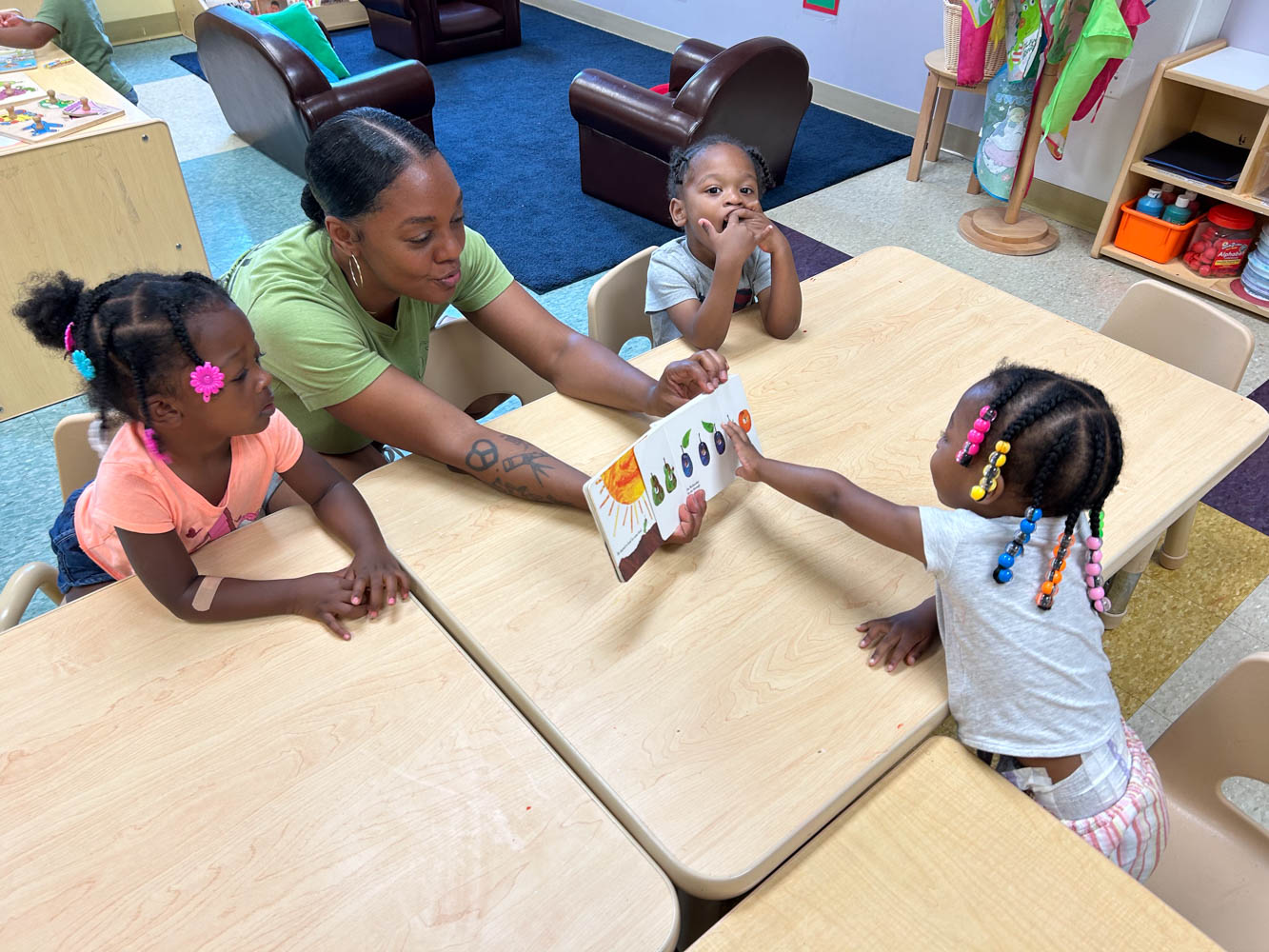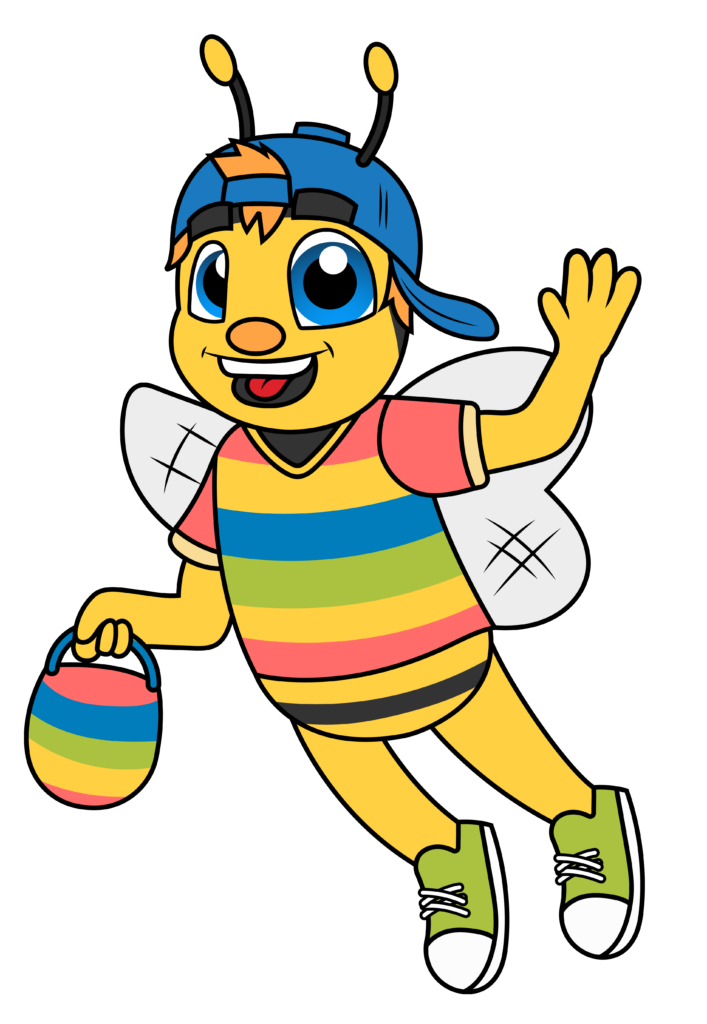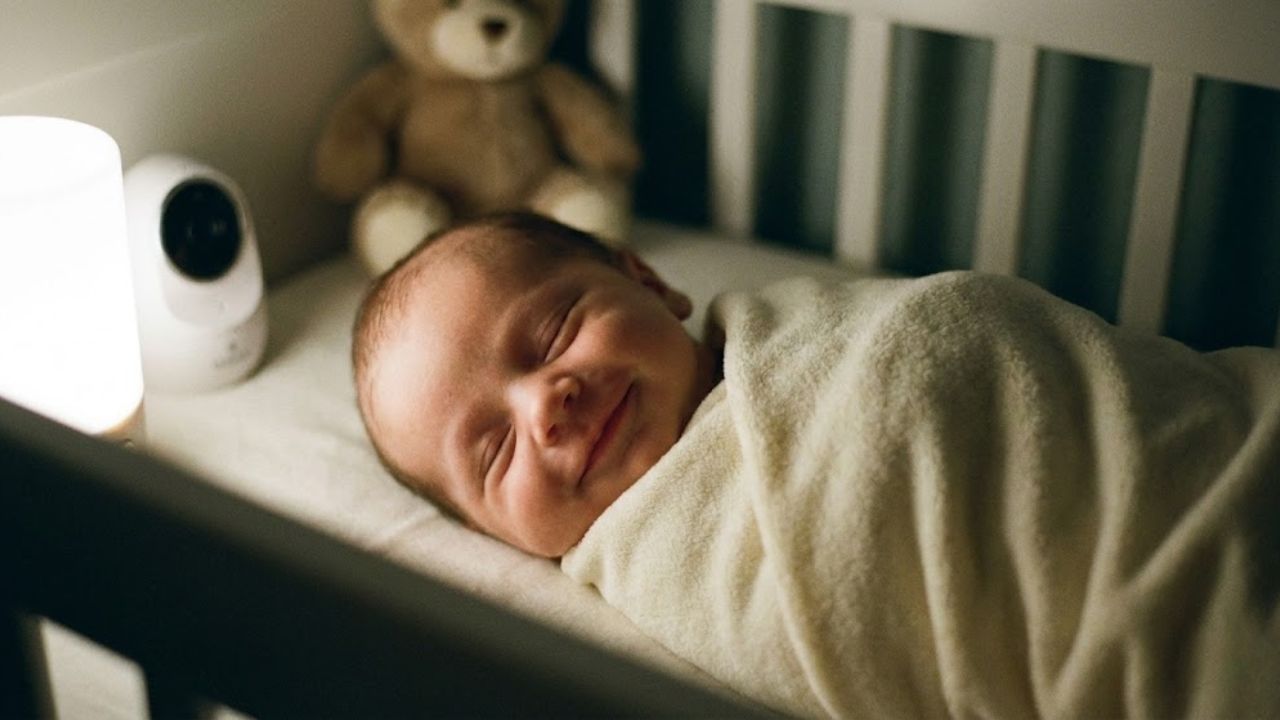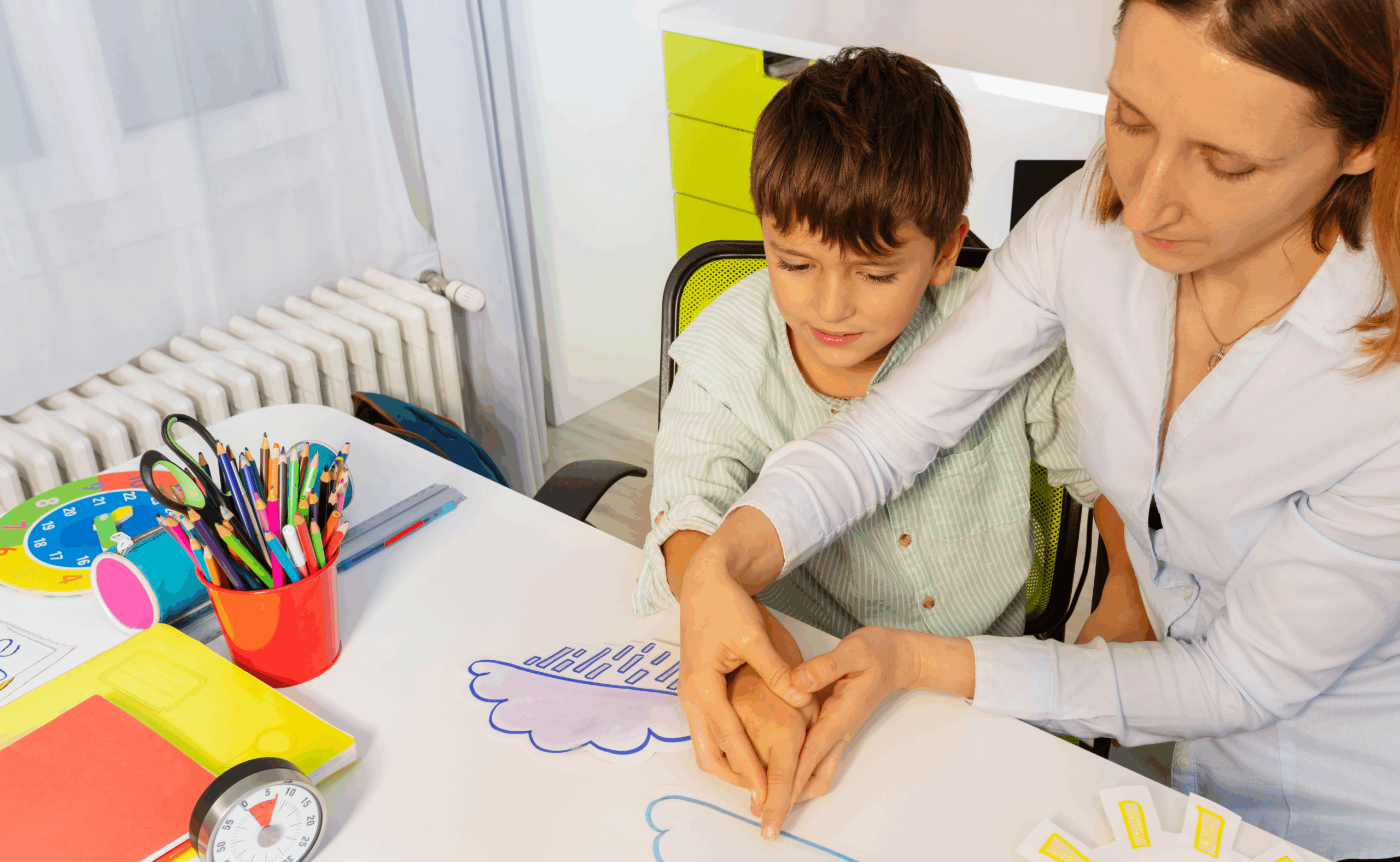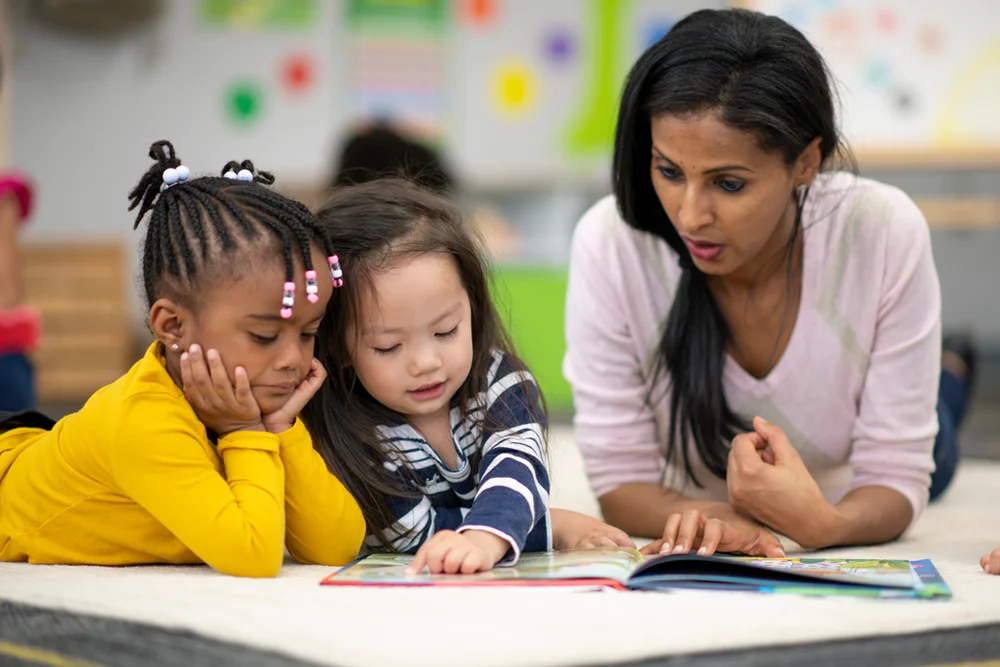Sending your child to daycare for the first time may make you feel anxious as a parent. Because although finding the perfect daycare for your child was a challenge, the first day of daycare may be quite intimidating for your toddler. Some parents find that helping their child adjust to new care is quite difficult, while some other toddlers adjust to daycare with no problem at all. Your toddler may be somewhere in between.
Since you already did your research to pick the best childcare in Ohio for your toddler and you asked all the right questions during your daycare tour, all that’s left is getting your toddler ready for the transition. While, sure, that seems like the most daunting aspect of it all, it doesn’t have to be. After all, starting childcare is often harder on you than on your little one, according to the American Academy of Pediatrics (AAP).
Now, rest assured, it is very natural to worry about how your child will adjust to a new environment, how they will interact with other children, and how they will cope with separation anxiety. However, there are steps you can take to prepare your child for daycare and make the transition smoother for both of you. To help ease both your minds—and to make the shift to daycare smooth as can be— we’re giving you a complete guide on How to Prepare Your Toddler for Daycare.
What Are the Signs That My Toddler Is Ready for Daycare?
Before we start, let’s first figure out if your toddler is ready for daycare. Sure, you’ve already gone through the whole process of enrolling them in a daycare, but there may still be some second thoughts, especially if your toddler doesn’t seem too ready for the next step yet. Here are some telltale signs that your toddler is ready for daycare:
1. They Can Follow Routines
Daycare centers have set schedules, including specific times for naps, meals, and activities. If your child can follow a regular routine at home, they are likely ready to adapt to the daycare schedule. This helps them know what to expect throughout the day, reducing anxiety and making the transition smoother. If your child can stick to morning and bedtime routines, get dressed, and participate in daily activities, they are likely ready for daycare.
2. They Show Independence
Independence is an important milestone for toddlers. By the age of two, many children begin to assert their independence by wanting to do things on their own. Signs of independence include eating by themselves, playing alone or with other children, and starting to use the bathroom with minimal help. These skills are essential for daycare, where children are encouraged to perform tasks independently. This developmental stage indicates that your toddler is confident and capable of handling the new experiences and responsibilities that come with daycare.
3. They Are Interactive
Social skills are critical for a successful daycare experience. If your child enjoys playing with others, shares toys, and participates in group activities, they are likely ready for daycare. Even if the first few days are challenging, children who are used to interacting with peers will quickly adapt to the social environment of daycare. This interaction helps them learn important social skills such as cooperation, sharing, and communication, which are vital for their overall development.
4. They Are Curious to Learn
A natural curiosity and eagerness to learn are excellent indicators of daycare readiness. Toddlers who show interest in exploring new environments, meeting new people, and engaging with different activities will thrive in a daycare setting. If your child enjoys discovering new shapes, colors, books, and toys, their inquisitive nature will help them adapt to and benefit from the structured learning and play activities offered at daycare. This curiosity not only aids in their cognitive development but also makes the daycare experience exciting and enjoyable for them.
5. They Are Potty Trained
While not all daycare centers in Ohio require children to be fully potty trained, being potty trained is a significant step towards readiness. Potty training demonstrates that your child can manage their bathroom needs independently, reducing potential distractions during daycare activities. It also shows that they have reached a level of maturity and self-control. If your child can use the toilet independently, communicate their needs, and handle basic hygiene, it is a strong sign that they are prepared for the daycare environment.
How Can I Introduce The Idea Of Daycare To My Toddler In A Positive Way?
Introducing the idea of starting daycare to toddlers can be both exciting and reassuring with these tips. First, make the prospect sound exciting by highlighting the fun activities they’ll get to do, such as painting, singing songs, and playing with toys. Emphasize the opportunity to make new friends and play together with kids their age. Using positive language like “spending time with new teachers” instead of “leaving you” helps frame daycare as an adventure.
To bring the daycare experience to life, read children’s books about daycare together and discuss the enjoyable activities depicted. Create a pretend play scenario at home where they can act out daycare routines, like snack time and play sessions with stuffed animals as their pretend friends and teachers. If possible, show them pictures or videos of the daycare facility to familiarize them with the environment.
Keep explanations simple and reassuring. Toddlers need brief, straightforward explanations about daycare being a place to play and learn while parents are at work. Always reassure them that you’ll pick them up afterward and focus on the enjoyable time you’ll have together. Answer any questions they have honestly and in a way that they can understand, ensuring they feel supported and prepared for this new experience.
How to Prepare Your Toddler for Daycare
Getting your toddler ready for daycare or preschool is a big step. With a little preparation, you can make the transition smoother. Here are 10 practical tips to help make those first days at daycare easier for both you and your child. Over time, your toddler will become more comfortable, gain confidence, and adjust to their new routine and surroundings.
Talk to Your Toddler About Daycare
Start conversations early and talk about daycare or preschool frequently in the days leading up to their first day. Describe the activities they’ll enjoy, like painting, singing songs, and playing with toys. Highlight the new friends they’ll meet and the fun experiences they’ll have. The more you discuss it positively, the more comfortable and excited your child will feel about this new adventure.
Use Pretend Play
Engage your child in pretend play scenarios that mimic daycare routines. Use their future teachers’ names, set up a play area with similar toys, and go through activities like snack time and story reading. This hands-on approach helps familiarize them with what to expect, making the real transition smoother.
Let Your Child Experience Group Settings
If your child is accustomed to being at home or with you most of the time, introduce them to group settings gradually. Arrange playdates with other children, attend community events like library story times, or join parent-child classes such as music or art sessions. These experiences help your child develop social skills, learn to share, and feel more comfortable in a group setting.
Create a Helpful Morning Routine
Establish a predictable morning routine that includes waking up at a consistent time, having breakfast together, getting dressed, brushing teeth, and packing their daycare bag the night before. A structured routine reduces stress for both you and your child, ensuring a smoother start to the day.
Adjust Your Toddler’s Sleep Schedule
Begin adjusting your child’s sleep schedule gradually a few weeks before daycare starts. If daycare requires an early drop-off, start waking your child up earlier to ease into the new routine. Adjust their bedtime accordingly to ensure they get enough rest for the day ahead.
Pack Everything the Night Before
To avoid morning rush and last-minute stress, pack your child’s daycare bag the night before. Include essentials like extra clothes, diapers or underwear, snacks, a water bottle, any comfort items from home, and necessary paperwork. Label everything clearly with your child’s name.
Bring a Favorite Item from Home
Consider packing a comforting item from home in your child’s daycare bag, such as a favorite stuffed animal, a small blanket, or a family photo. This familiar item can provide reassurance and comfort during moments of separation anxiety.
Be Mindful of Your Emotions
Children often pick up on their parents’ emotions. Stay positive when discussing daycare or preschool with your child. If you feel anxious or emotional about the transition, find a quiet moment away from your child to process your feelings. Stay confident and reassuring when talking to your child, emphasizing how much fun they’ll have and reassuring them of your return at the end of the day.
Encourage Your Toddler’s Independence
Encourage your child to practice independence in daily activities. Let them choose their clothes, help set the table, or pick out a bedtime story. Teaching them these small tasks builds their confidence and prepares them for the independent activities they’ll encounter at daycare or preschool.
Visit the Preschool/Daycare
Schedule a visit to the daycare or preschool before their first day. Tour the facility together, explore the classrooms and play areas, and meet the teachers. Introduce your child to their future learning environment and show them where they’ll hang their backpack, eat snacks, and take naps. Familiarizing your child with the daycare setting eases anxiety and allows them to feel more comfortable and excited about their upcoming experience.
Keep Drop-Off Short & Sweet
When the first day arrives, keep the drop-off brief and positive. Reassure your child with a hug and a smile, remind them of your return time, and leave confidently. Lingering may prolong any separation anxiety. Trust that daycare teachers are experienced in handling transitions and will comfort your child if needed.
Let Go of Mom Guilt
It’s natural to feel emotional about your child starting daycare. Remember that this experience is beneficial for their social, emotional, and cognitive development. Trust in your decision and remind yourself that you’re providing your child with valuable opportunities to learn and grow in a supportive environment.
Prepare Your Child for Daycare at Clever Bee Academy, Ohio
Preparing your toddler for daycare can be a significant milestone for both child and parent alike. It’s natural to feel a mix of emotions—excitement, nervousness, and perhaps a touch of apprehension. However, with the right approach, you can help your little one ease into this new adventure with confidence and joy.
Clever Bee Academy is here to support you through this exciting journey, making sure the transition goes smoothly and setting the stage for positive experiences at daycare. Schedule a tour to visit our locations and meet our caring teachers who are dedicated to your child’s growth and learning.

